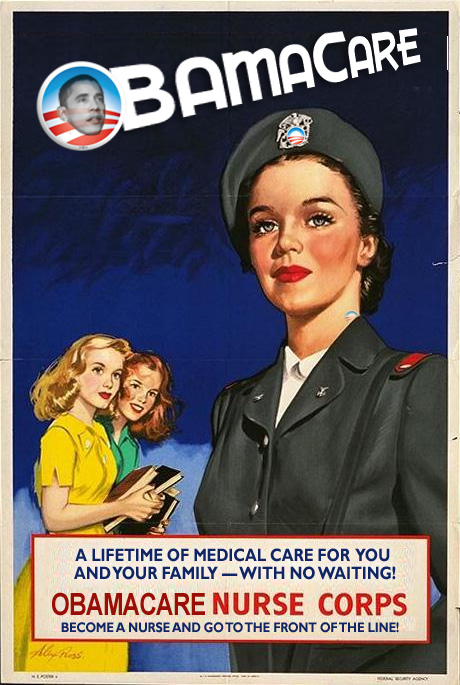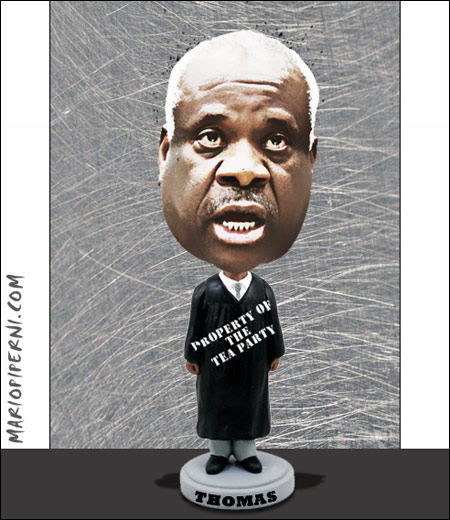
NEW YORK TIMES: Supreme Court on Monday agreed to hear a challenge to the 2010 health care overhaul law, President Obama’s signature legislative achievement. The development set the stage for oral arguments by March and a decision in late June, in the midst of the 2012 presidential campaign. The court’s decision to step in had been expected, but Monday’s order answered many questions about just how the case would proceed. Indeed, it offered a roadmap toward a ruling that will help define the legacy of the Supreme Court under Chief Justice John G. Roberts Jr. The court scheduled five and half hours of argument instead of the usual one, a testament to the importance of the case, which has as its center an epic clash between the federal government and the 26 states that together filed a challenge to the law. Appeals from three courts had been vying for the justices’ attention, presenting an array of issues beyond the central one of whether Congress has the constitutional power to require people to purchase health insurance or face a penalty through the so-called individual mandate. The Supreme Court agreed to hear appeals from just one decision, from the United States Court of Appeals for the 11th Circuit, in Atlanta, the only one so far striking down the mandate. The decision, from a divided three-judge panel, said the mandate overstepped Congressional authority and could not be justified by the constitutional power “to regulate commerce” or “to lay and collect taxes.” The appeals court went no further, though, severing the mandate from the rest of the law. On Monday, the justices agreed to decide not only whether the mandate is constitutional but also, if it is not, how much of the balance of the law, the Patient Protection and Affordable Care Act, must fall along with it. MORE
RELATED: The day the Supreme Court gathered behind closed doors to consider the politically divisive question of whether it would hear a challenge to President Obama’s healthcare law, two of its justices, Antonin Scalia and Clarence Thomas, were feted at a dinner sponsored by the law firm that will argue the case before the high court. MORE
NEW YORK TIMES: Almost everywhere I’ve traveled this fall, people have asked me whether it’s true that Justice Clarence Thomas is the real, if under-appreciated, intellectual leader of the Supreme Court. Invariably, my questioners have read Jeffrey Toobin’s provocative “Annals of Law” piece in the Aug. 29 New Yorker that made this claim: “In several of the most important areas of constitutional law, Thomas has emerged as an intellectual leader of the Supreme Court.” True, the author referred to an intellectual leader, rather than the, but the article went on to assert that “the implications of Thomas’s leadership for the court, and for the country, are profound.” MORE
JEFFERY TOOBIN: It is likely to be the most important case for the Justices since Bush v. Gore, and it will certainly be the clearest test yet of Thomas’s  ascendancy at the Court. Thomas’s entire career as a judge has been building toward the moment when he would be able to declare that law unconstitutional. It would be not only a victory for his approach to the Constitution but also, it seems, a defeat for the enemies who have pursued him for so long: liberals, law professors, journalists—the group that Thomas refers to collectively as “the élites.” Thomas’s triumph over the health-care law and its supporters is by no means assured, but it is now tantalizingly within reach. MORE
ascendancy at the Court. Thomas’s entire career as a judge has been building toward the moment when he would be able to declare that law unconstitutional. It would be not only a victory for his approach to the Constitution but also, it seems, a defeat for the enemies who have pursued him for so long: liberals, law professors, journalists—the group that Thomas refers to collectively as “the élites.” Thomas’s triumph over the health-care law and its supporters is by no means assured, but it is now tantalizingly within reach. MORE
THE NATION: In 2009, Ginni Thomas founded Liberty Central, a conservative non-profit that she said would fight President Obama’s “hard-left agenda.” Thomas said she “felt called to the front lines with you, with my fellow citizens, to preserve what made America great.” The group frequently advocates against “Obamacare,” pushing misinformation that it would be a “disaster” for small businesses and urging lawmakers to repeal it.This created immediate concern among legal experts, who were worried about the obvious conflict of interest, given that her husband would likely rule on challenges to the law. Moreover, Liberty Central was taking unlimited and secret donations, something aided by Clarence Thomas’s ruling in Citizen’s United. The liberal group Common Cause complained to the Justice Department at the time, and noted “the complete lack of transparency of Liberty Central’s finances makes it difficult to assess the full scope of the ethics issues raised by Ms. Thomas’s role in founding and leading the group.” Ginni Thomas resigned from Liberty Central late last year amid controversy over her role, though the decision was also aided by fundraising troubles and a bizarre, ill-considered phone call she placed to Anita Hill, the woman who accused her husband of sexual harassment 20 years prior. But only a few months later, Ginni returned as head of “Liberty Consulting,” a new firm that boasted the ability to use Ginni’s “experience and connections” to help clients “with “governmental affairs efforts.” She met with over half of the incoming freshman class of legislators, and e-mailed all of their chiefs of staff, dubbing herself “a self-appointed, ambassador to the freshmen class and an ambassador to the tea party movement.” MORE
RELATED: Look for the first installment of our in-depth multi-part interview with Wendell Potter, former CIGNA healthcare insurance exec who had a crisis of conscience and turned whistleblower later this week!
